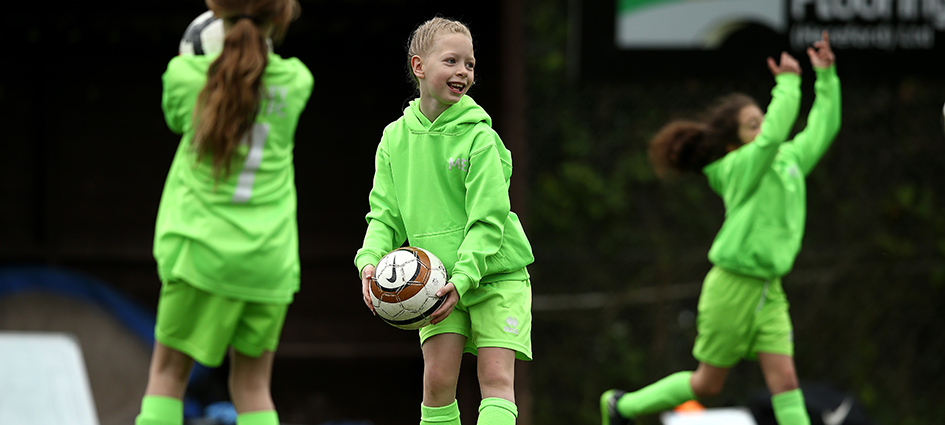
Provide a positive experience for your players
- The Boot Room
- 02 May 2019
Adopting a positive “can do” approach to the way you act as a coach, parent or volunteer is setting a great example to the young children in your team.
How you make your young players feel will have a massive impact upon the relationship you build with each one and at what pace they might develop as a result of your coaching.
Of course there are many factors out of your control that can influence development but when you’re with the players, you can ensure that the environment is a positive and supportive one. To help you, think about the acronym - C.H.A.M.P.
This provides a checklist for things you can consider when supporting young players. It’s a really clear and simple set of things to think about that will provide a great platform for development.
The enjoyment that comes from feeling safe, secure, valued and respected.
Seeing progress, setting achievable targets, being dignified in victory and defeat, working together.
The use of positive language, feedback, using words that convey value and respect and help to instil a sense of belief (not false belief or big headedness).

Football will provide you with many opportunities to help players cope with how they feel and through this approach you can help them to regulate their emotions in a really positive and productive way.
However, it’s important that you also model the kind of behaviour that you want to see in your players. Ranting and raving at the referee, shouting at players and allowing your frustrations to get the better of you will destroy the environment you’re advocating and the players will see straight through you.
At all times you have to think: what are the players learning from my behaviours?
Children in the Foundation Phase construct their knowledge of the world by what they see, hear and experience so they will mimic and copy the actions of the adults around them.
And why wouldn’t they - aren’t adults supposed to know how to behave?
To summarise, using C.H.A.M.P. is:
- using the principles and processes of positive psychology when planning, communicating, providing feedback and speaking with players
- wanting the young players to have a really positive experience if they have chosen to engage with football and commit to joining a team
- getting to know each child and trying to provide the right challenges for them
- seeing your involvement with the team as an opportunity to help each player improve and to help them become an even better person
- using football to present a balanced perspective on winning, losing, sportsmanship and respect
- sending out a strong message that the result is important but what you learn from the experience is more important.
You have a unique opportunity in the Foundation Phase to help develop your young players attitudes to participation and competition.
A positive environment doesn’t mean it’s easy or not demanding. In fact it’s the exact opposite. A positive environment means that you can really challenge the players because you know them well and, through the relationship you have built up a level of trust has been established that allows you to push the players to even greater things.
This article was based on a model from University Centre Hartpury’s Tony Ghaye, following his research around the creation of a positive environment and using a positive psychology with young sports people.
To learn more about Foundation Phase DNA, click here.


